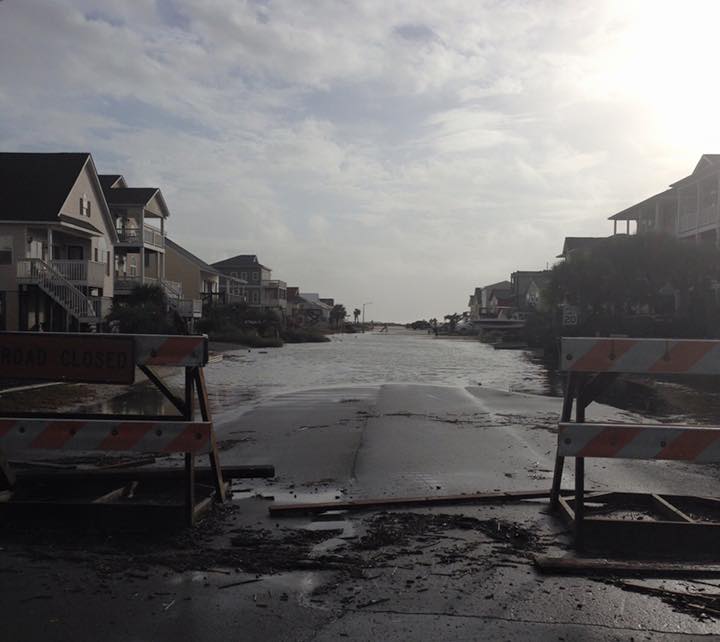Attorney General: Watch Out for Storm Scams
 RALEIGH, N.C. — Attorney General Roy Cooper warned consumers Friday to be on the lookout for scams that could follow severe weather in North Carolina.
RALEIGH, N.C. — Attorney General Roy Cooper warned consumers Friday to be on the lookout for scams that could follow severe weather in North Carolina.
“Shameless scammers follow storms and prey on those who are trying to recover from the damage,” Cooper said. “Avoid problems from the start by learning the warning signs for storm scams.”
The majority of North Carolina contractors, tree removal companies and car repair shops are reputable businesses, and many local merchants pitch in to help their communities recover from severe weather. However, some unscrupulous scammers travel to areas that have been hit by natural disasters to take advantage of consumers, Cooper warned.
North Carolina’s price gouging law also remains in effect to protect consumers from excessive prices.
Cooper urged North Carolina residents to report scams and frauds to his office by calling toll-free 1-877-5-NO-SCAM within the state or by filing a consumer complaint at www.ncdoj.gov.
To avoid scams that follow storms:
- Put safety first. If you need to evacuate on short notice, for example due to flooding, don’t risk your safety by gathering your personal items. After the storm has passed, do not attempt to move downed power lines or attempt dangerous repairs on your own.
- Take important financial documents with you if you evacuate, including insurance policies, mortgage documents, an inventory of the contents of your home, and any bills to pay. Also take your insurance agent’s phone number and the number for the Consumer Protection hotline, 1-877-5-NO-SCAM, with you.
- If the storm damages your property, contact your insurance company. Some insurance companies require an adjuster’s approval before work can be done. Take pictures and videos of the damage, if possible. Cover holes in your roof or walls with a tarp to prevent additional damage if you can do so safely.
- Don’t pay for work up front. Inspect the work and make sure you’re satisfied before you pay. A small down payment may be required for some projects, but don’t pay anything without getting a written contract. Avoid paying with cash; use a check or a credit card instead.
- Beware of any contractor who tries to rush you or comes to your home to solicit work. If an offer is only good now or never, find someone else to do the work. Seek recommendations from friends, neighbors, co-workers and others who have had work done on their homes.
- Get three written estimates, if possible, and compare bids. Check credentials and contact the Attorney General’s Office and the Better Business Bureau to learn about any complaints against the contractor. Ask to get the contractor’s certificate of insurance directly from their insurance company, not from the contractor. Before work begins, get a written contract detailing all work to be performed, costs and a projected completion date.
- For car repairs, shop around and compare written estimates. On major jobs, get a second opinion. If the mechanic recommends replacing parts, ask for the old parts back. You may get credit on some parts if the mechanic wants to keep them.
- Beware of charity scams that use disasters to make phony pleas for donations sound more real. If a caller refuses to answer your questions about the charity, offers to come to pick up a donation in person or calls you and asks for a credit card, bank account or Social Security number, it may be a scam. To report telemarketing fraud, call the Attorney General’s Office. To check up on a charity, call the Secretary of State’s office toll‑free at (888) 830‑4989.
“Scammers will take any opportunity to take your hard-earned money,” said Cooper. “If you think someone is using this storm and its aftermath to try to rip you off, let my office know right away.”
Contact the Attorney General’s Consumer Protection Division toll-free at 1-877-5-NO-SCAM within North Carolina or file a complaint online at www.ncdoj.gov.
For tips on preparing for severe weather, visit readync.org.
